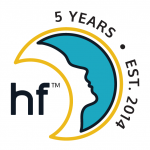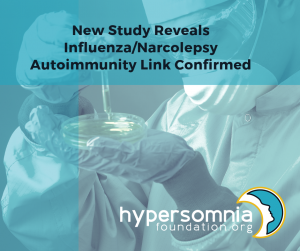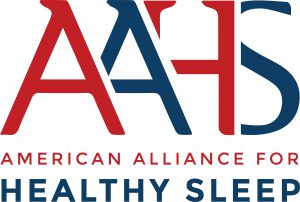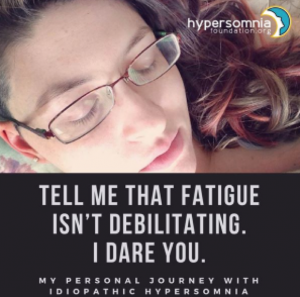SomnusNooze
Happy February! This month is full of celebrations – the Lunar New Year (it’s the Year of the Pig), Black History Month, Presidents’ Day, and the sweetest day of all – Valentine’s Day! But since February is also the shortest month, that means you won’t have much extra time after all of these celebrations. So we at the Hypersomnia Foundation want to help, by giving you the gift of time – it’s our newest “In Case You Missed It!”. This month we highlight some of the most important news and social media posts about the HF, idiopathic hypersomnia, and related sleep disorders from the past 4 weeks. From our June Educational Meeting in Seattle to the HF’s 5th Anniversary (Happy Birthday to us!) to a Georgia Public Broadcasting series (which features Dr. David Rye of Emory University and people sharing their stories of living with IH) to numerous research updates from around the world, we have you covered!
JOIN THE HF FOR AN EDUCATIONAL MEETING IN SEATTLE ON JUNE 29
 Join us in Seattle on Saturday, June 29, 2019, from 10:00 a.m. – 3:00 p.m. for an HF Educational Meeting with guest speaker Dr. David Rye of Emory University. Representatives from Balance Therapeutics will also provide information about their ongoing Arise2 IH clinical trial. Additional speakers are still being confirmed and will be announced prior to this event. The meeting will be held at the Seattle Airport Marriott on 176th Street, and we have arranged for a discounted room rate. Click HERE to reserve your room now. The cost for the event is $25, and you can register through EventBrite. Look for updates via our social media, SomnusNooze, and our Seattle Event page.
Join us in Seattle on Saturday, June 29, 2019, from 10:00 a.m. – 3:00 p.m. for an HF Educational Meeting with guest speaker Dr. David Rye of Emory University. Representatives from Balance Therapeutics will also provide information about their ongoing Arise2 IH clinical trial. Additional speakers are still being confirmed and will be announced prior to this event. The meeting will be held at the Seattle Airport Marriott on 176th Street, and we have arranged for a discounted room rate. Click HERE to reserve your room now. The cost for the event is $25, and you can register through EventBrite. Look for updates via our social media, SomnusNooze, and our Seattle Event page.
HAPPY 5TH ANNIVERSARY TO THE HYPERSOMNIA FOUNDATION!
 Five years ago our founders came together with a common goal and established the Hypersomnia Foundation, Inc., a non-profit organization dedicated to advocate, educate, and provide research and resources on behalf of people affected by idiopathic hypersomnia and related disorders. We are proud of the accomplishments made thus far and remain steadfast in our dedication towards the mission. Thank you to our generous donors and supporters from the sleep community. Please consider helping us celebrate our Anniversary by making a donation today!
Five years ago our founders came together with a common goal and established the Hypersomnia Foundation, Inc., a non-profit organization dedicated to advocate, educate, and provide research and resources on behalf of people affected by idiopathic hypersomnia and related disorders. We are proud of the accomplishments made thus far and remain steadfast in our dedication towards the mission. Thank you to our generous donors and supporters from the sleep community. Please consider helping us celebrate our Anniversary by making a donation today!
YOUR FANTASTIC MIND
MUST SEE! Great episode of “Your Fantastic Mind” which aired on February 11 on Georgia Public Broadcasting and featured Dr. David Rye of Emory University and people sharing real stories about living with idiopathic hypersomnia. Watch the episode HERE. And share this link with family and friends, so that we can educate and spread awareness about IH.
NEUROSCIENTISTS IDENTIFY ONE SINGLE CONTROL CENTER FOR SLEEP AND WAKE IN THE BRAIN
Neuroscientists at the Department of BioMedical Research at the University of Bern and the Department of Neurology at Inselspital, Bern University Hospital, have found that neurons in the thalamus, a central hub of the brain, control sleep as well as wakefulness. (The thalamus is connected to almost all other brain areas and supports important brain functions including attention, sensory perception, cognition, and consciousness.) These researchers discovered that a small population of these thalamic neurons have a dual control over sleep and wakefulness. Uncovering the control mechanisms of these thalamic neurons could lead to new sleep therapies. Read more about the study HERE.
UMECRINE COGNITION ANNOUNCES RESULTS OF THEIR PHASE 2A STUDY OF GR3027
 Umecrine Cognition has announced their overall results from a Phase 2a Study with the candidate drug GR3027 in patients with idiopathic hypersomnia. The study met its primary objectives in regard to safety and pharmacokinetics, and also showed preliminary evidence of clinical efficacy. Read more HERE, and check out results of other past research studies promoted by the HF HERE.
Umecrine Cognition has announced their overall results from a Phase 2a Study with the candidate drug GR3027 in patients with idiopathic hypersomnia. The study met its primary objectives in regard to safety and pharmacokinetics, and also showed preliminary evidence of clinical efficacy. Read more HERE, and check out results of other past research studies promoted by the HF HERE.
SLEEP-INDUCING GENE LINKS SLEEP AND IMMUNE FUNCTION IN FRUIT FLIES
A sleep-inducing gene has been found to link sleep and immune function in drosophila, more commonly known as the fruit fly. Like us, flies sleep more when they get infections. This is the first time researchers have increased the activity of a gene and triggered more sleep. And disabling this gene doesn’t disrupt regular sleep – rather, it returns flies to their regular sleep. Read more HERE.
IF YOU’RE HOSPITALIZED AND HAVE IH…
If you’re hospitalized and have IH, you must be proactive in making sure your hypersomnia/sleep needs are met. This recent “Sleep Review” article sheds some light on the consequences of sleep deprivation in hospitals. See also our other related articles about surgery and hospitalization if you have a hypersomnia.
IH GETS A “SHOUT-OUT” IN THE WASHINGTON POST
Interesting article in the Washington Post about the health effects of long sleep times and how genetics may play a role in those who require more hours of sleep per night. The article also points out that it’s “important to distinguish long sleep from a condition known as idiopathic hypersomnia.” A small mention, but a big step toward increasing awareness of IH and helping us get #BeyondSleepy.
ARTIFICIAL INTELLIGENCE IS ABOUT TO CHANGE SLEEP RESEARCH
Sleep is not well understood, in part because of how challenging it is to study. But that is about to change! In the near future, patients will be continuously, but passively, monitored at home and the data will be processed more efficiently, to help researchers better understand sleep quality and issues, all thanks to artificial intelligence! Read more HERE.
“GENETICS OF NARCOLEPSY”
Nature’s Human Genome Variation published an article entitled “Genetics of Narcolepsy,” which provides a comprehensive review of the current state of genetics research of sleep disorders. Read more HERE.
NARCOLEPSY IS VERY LIKELY AN AUTOIMMUNE DISEASE

A new study, led by sleep researcher Emmanuel Mignot of Stanford University, presents strong evidence confirming his theory that narcolepsy is an autoimmune disease. Dr. Mignot’s team was able to track down the specific set of helper T cells that react strongly to both a protein found in the flu virus and a protein residing on key brain cells whose loss induces narcolepsy. Read more about it at the Stanford University School of Medicine’s blog.
MANY PEOPLE DON’T KNOW WHETHER THEIR INSURANCE COVERS SLEEP SERVICES AND SAY THEIR PRIMARY PHYSICIAN HAS NEVER ASKED ABOUT THEIR SLEEP
 A survey conducted by the American Alliance for Healthy Sleep suggests that patients need more access to affordable sleep care and accurate sleep health information. For example, 48% of respondents indicated that their primary care physician has never asked questions about sleep during consultations or physical exams. And 78% of respondents reported that cost affects their decision to seek medical care. Finally, more than half of respondents were unaware of whether sleep services were even covered by their insurance. Read more about it HERE.
A survey conducted by the American Alliance for Healthy Sleep suggests that patients need more access to affordable sleep care and accurate sleep health information. For example, 48% of respondents indicated that their primary care physician has never asked questions about sleep during consultations or physical exams. And 78% of respondents reported that cost affects their decision to seek medical care. Finally, more than half of respondents were unaware of whether sleep services were even covered by their insurance. Read more about it HERE.
PERSONAL JOURNEY STORIES
 Read Caitlin’s personal journey of living with idiopathic hypersomnia, which she describes as feeling like a “turtle going uphill through molasses in January.”
Read Caitlin’s personal journey of living with idiopathic hypersomnia, which she describes as feeling like a “turtle going uphill through molasses in January.”
And read Lisa R.’s personal journey of living with IH, in which she states, “While most of the world sleep in shallow water at night and pop up onto the dry land where they stride about all day, I sleep in the depths and only make it to more shallow water during the day, still over my head though.” Read more of Lisa’s “Drowning In Sleep” story, and share your Personal Journey with the Hypersomnia Foundation.
